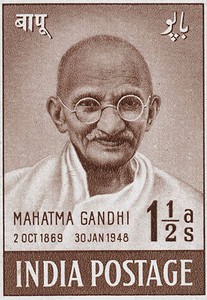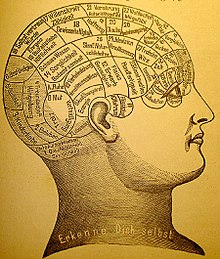TAT Forum
September 2020
Homing Ground Update… A spot on earth where people can do retreats and hold
|
Receive new-Forum notifications each month
Let your voice be heard
Enjoy the benefits of TAT membership
Become a TAT member
Help support TAT;
become a member today
|
As an Amazon Associate, TAT earns from qualifying purchases made through links on our website. |

Convictions & Concerns
TAT members share their personal convictions and/or concerns
The Mechanics of Creation
Written to Anima Pundeer by Bob Cergol in response to Anima's question like the one she asked Bart Marshall in the April 2020 online TAT gathering, in effect: "What is the attitude of the Absolute—why manifestation?" and a subsequent comment: "The best part of the TAT retreat is seeing people come together with a common goal of finding Truth, driven by Love for Truth."
It was so good to see your smiling, happy face yesterday. Like you, my surface life is preoccupied with the mundane—
and I'm growing increasingly unhappy with it—mostly my job, which I hate spending so much time and attention on.
But whenever I stop long enough, my attention drifts back to home-base, where I can rest in still silence—from which
vantage point I often indulge in gazing at the poignant passage of time—the stories, mostly of my own life and family,
but also the world at large, the timeless beauty. It often brings tears. You know, Anima, after all these years, it's still
true what I wrote when I answered your question in that first I/O group [a tradition of email confrontation/self-inquiry discussion groups, beginning circa 1998; the question would have occurred after Bob's breakthrough in October 1999]: "Where is Bob?", especially the part where "Bob is still learning how to live while abiding in Me."
I think very few people are motivated to attend meetings, or to seek answers, by a love for truth. The motivation is for profit—in some form. Someone asked the question of Bart something like: "How do you get to the point of wanting the truth above all?" The answer of course can only be: When you stop wanting everything else—and the only way that happens is through failure to obtain those desires, or failure of such fulfillment to be satisfying, until the seeker loses all hope for any such profit. This issue is another reason why group work is so important. Helping others can chip away at this selfish profit-motive.
So I started to respond to your comment/question about that phrase I sent you in the chat window and ended up writing more than I anticipated, because I left out the rest of that metaphor. I've talked about it in TAT presentations over the years and think it may already be written down somewhere in the Forums. There's a lot more to that metaphor about God not having the power to divide himself—the part where individuals appear in the mirror, who are lost and separate, and want to go home and merge with their source. [See more on this at "Desire to Be Reabsorbed" - Ed.]
Related to that same topic of "the mechanics of creation" is the question: "Who is it that sees their own nonexistence?!"—I started asking myself those questions very soon after my realization, as the mind fumbled for an explanation of the paradox and wanted to explain what happened and how. Two fundamental themes came to me: self-definition, and reflections-in-the-mirror.
- The human condition is one of individuality driven to define itself to itself—which it does so by seeking affirmation, i.e. "growth" of that individuality. The individuality is born of experience, so all experience, negative and positive, reinforces that individuality, but negative experience generates doubt, and raises the fear of losing that individuality.
- The capacity to witness experience does not belong to us—but rather comes from That which precedes us—God, Brahman, The Absolute, Bart's "Aware Emptiness."
So these two things combined led me to see this image of God holding up a mirror. What would God see reflected? Everything God touches or that touches God—is God—because it is impossible for God to divide himself. In childhood, I heard Catholic teachings that "Man was made in the image of God." I would say the entire manifest creation is what appears in the mirror that God is holding up.
In this metaphor, I see the reflection of God about to make eye contact, and just before those eyes meet, the reflection turns its gaze away, towards the world in the mirror. Why?—Because that reflection is enlivened (since God cannot divide himself), and inherits the power of Awareness—in a reflected universe, and this is the definition of experience—and individuality arises from experience—and instantly, that individuality looks to experience as its source—but that looking, that capacity to see, is a power that comes from and belongs to God alone—not the reflection. Self-transcendence, Self-Realization, Enlightenment, Waking Up, etc. "happens" when the individual stops looking away, and makes eye-contact with the Source. (Going within. Retreat from un-truth. Reverse vector. Inward vector of the attention.) It could also be said that there is always eye-to-eye contact between the individual and its Source, but that the focus of the attention is on anything but the Source, since it is consumed by experiences that generate the sense of "I am" … ALIVE—as ME—as a separate (SELFISH) self.
As Meister Eckhart so famously wrote: "The Eye with which I see God, is the same Eye with which he sees me."
So for me, the foundational principle of the spiritual path is going within, and real going within is experienced as a loss of self. Imaginary going-within is experienced as an affirmation of individuality—which is the vast majority of what is imagined to be spiritual practices and spiritual results. Going within simply means to look within for one's source, to stop looking away from it, and to look at nothing else but one's source. It's apparently not so simple to do because the vector of seeing from birth is outward, towards experience—which reinforces and defines the separate individual. That individual does not let go easily. Ramana and Nisargadatta both say to ask "Who Am I?" and to "Follow the I-am." People imagine they practice that. I suppose it is good to try. But I think it never works, until one has already ripened, i.e. stopped wanting everything else. I think the surest way to look in an inward direction is to look at experiences of diminishment. This eventually leads to a chronic doubt sensation. The doubt-sensation leads to clear seeing of the "I am." But Nisargadatta also said: "Even the 'I-Am' must go" (or words to that effect). Hence the ultimate going-within, seeing one's source, having direct "eye contact with God" is the dissolution of the reflected self—nothing of that self remains—God finally sees his own reflection!—and it is Empty Awareness.
Sorry for the sermon. I know I'm preaching to the choir!
See you in the next cloud!
*
~ Thanks to Bob Cergol, one of the earliest of Richard Rose's esoteric students and a dedicated TAT member who remains active today in helping other seekers.

Would you like to share your impressions or questions with other TAT Forum readers? (Comments and questions may be selected for future Reader Commentary inclusions, identified with first name and first letter of last name or other attribution of your choice.) Please email your impressions/questions to the .


TAT Foundation News
It's all about "ladder work" – helping and being helped
April 4-5, 2020
June 13-14, 2020
August 15-16, 2020
* November 6-8, 2020 *
 Due to the coronavirus pandemic, TAT's November spiritual retreat weekend is scheduled tentatively for TAT's new retreat center in North Carolina but may be held online again. We will post more details as plans develop. See the events page for descriptions of the past four weekend events.
We are not accepting registration payment until plans develop. In the meantime, if you would like to express your intention to attend, please send an email to
.
Due to the coronavirus pandemic, TAT's November spiritual retreat weekend is scheduled tentatively for TAT's new retreat center in North Carolina but may be held online again. We will post more details as plans develop. See the events page for descriptions of the past four weekend events.
We are not accepting registration payment until plans develop. In the meantime, if you would like to express your intention to attend, please send an email to
.
*
 The following video recordings of presentations from a previous April TAT meeting are available on YouTube:
The following video recordings of presentations from a previous April TAT meeting are available on YouTube:

 Richard Rose spent his life searching for the Truth, finding it, and teaching others to find their Way. Although not well known to the public, he touched the lives of thousands of spiritual seekers through his books and lectures and through personal contacts with local study groups that continue to work with his teachings today. Meet Richard Rose is a 34-minute audio recording of an audiovisual presentation by Michael Whitely at the August 2017 TAT meeting that explores the arc of Richard Rose's life as seeker, finder, family man, and teacher.
Richard Rose spent his life searching for the Truth, finding it, and teaching others to find their Way. Although not well known to the public, he touched the lives of thousands of spiritual seekers through his books and lectures and through personal contacts with local study groups that continue to work with his teachings today. Meet Richard Rose is a 34-minute audio recording of an audiovisual presentation by Michael Whitely at the August 2017 TAT meeting that explores the arc of Richard Rose's life as seeker, finder, family man, and teacher.
 Downloadable/rental versions of the Mister Rose video and of April TAT talks
Remembering Your True Desire (details).
Downloadable/rental versions of the Mister Rose video and of April TAT talks
Remembering Your True Desire (details).
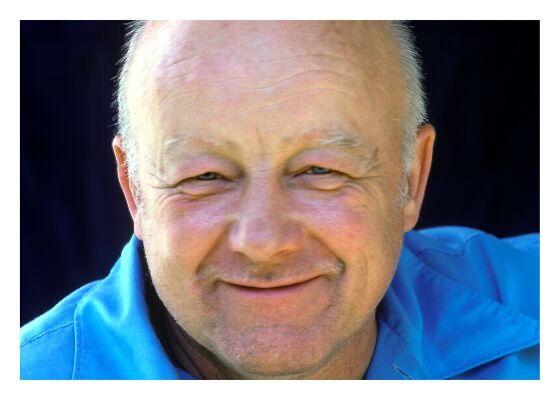
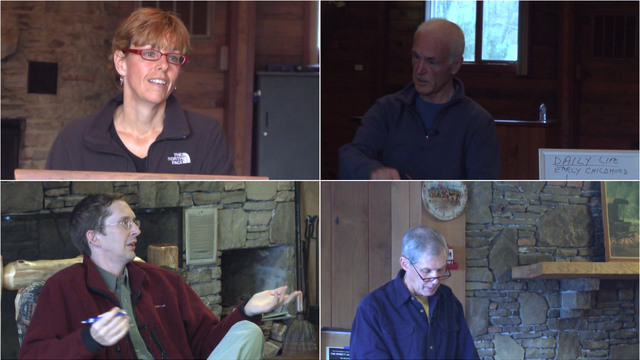
Local Group News
 Update for the Amsterdam, NL Self-Inquiry Group:
Update for the Amsterdam, NL Self-Inquiry Group:
The group is not holding meetings currently, but email
for information.
|
|

 Update from the Central Ohio Non-Duality Group:
Update from the Central Ohio Non-Duality Group:
The Columbus, Ohio self-inquiry group, now known as the Central Ohio Non-Duality Group, has continued to meet virtually on Tuesday evenings at 6:30PM during the Coronavirus pandemic. Please email one of the people's names below if you wish to get a link to the meeting. Meeting format involves discussion of topics of interest to seekers and often bridges from the concerns, questions and interests of the core members in attendance into the topic which we intend to discuss. We look forward to the easing of restrictions to the point where we feel comfortable meeting again in person.
~ For further information, contact
,
, or
.
We're also on Facebook.
|
|

 A new self-inquiry group is forming in Dulverton, South West England:
A new self-inquiry group is forming in Dulverton, South West England:
Currently meeting weekly in a backyard and will modify as the COVID situation changes.
~ Please contact
for more information.
 Update from the email self-inquiry groups:
Update from the email self-inquiry groups:
 The Women's Online Confrontation (WOC) group consists of weekly reports where participants can include:
The Women's Online Confrontation (WOC) group consists of weekly reports where participants can include:
> What is on your mind?
> Any projects that you want to be held accountable for?
> Responses to a selected excerpt (in the previous report).
> Comments/responses/questions for other participants.
A philosophical/spiritual excerpt with two or three questions is included in each report.
Based on what we share, participants ask questions to help get clarity about our thinking.
The intention is to help each other see our underlying beliefs about who we are.
One rule we try to adhere to is not to give advice or solve problems.
The number of participants, to make it work efficiently, is between 4 and 7 including the leader.
 There are two men's groups currently with 6 participants in each, down from three groups with 19 participants last year. They function like slow-motion self-inquiry confrontation meetings, which has its pros and cons. We alternate by asking each other questions one week then answering them the following week. Participants provide brief updates of highlights from the previous week and optional updates on progress toward objectives that they use the reports for accountability on.
There are two men's groups currently with 6 participants in each, down from three groups with 19 participants last year. They function like slow-motion self-inquiry confrontation meetings, which has its pros and cons. We alternate by asking each other questions one week then answering them the following week. Participants provide brief updates of highlights from the previous week and optional updates on progress toward objectives that they use the reports for accountability on.
 Both the women's and the men's email groups welcome serious participants.
~ Contact
or
for more information.
Both the women's and the men's email groups welcome serious participants.
~ Contact
or
for more information.

 Update from the Gainesville, FL self-inquiry group:
Update from the Gainesville, FL self-inquiry group:
Our meetings at the Alachua County library on alternate Sundays are still suspended while the library remains closed. In the meantime, the regular participants are saying hello to each other via email every Sunday, sharing whatever is on our minds.
~ Email
or
for more information.

 Update from Galway, Ireland:
Update from Galway, Ireland:
Tess Hughes is currently working with seekers one-to-one and holding occasional group self-inquiry retreats.
Anyone who's interested in self-inquiry activity in Ireland is welcome to
contact
.
 TAT Press publishes Tess's easy to read, profound This Above All, the story of her journey of Self-Discovery.
TAT Press publishes Tess's easy to read, profound This Above All, the story of her journey of Self-Discovery.
 This is a new listing for the self-inquiry group in Goldsboro, NC:
This is a new listing for the self-inquiry group in Goldsboro, NC:
The Goldsboro Inquiry Group (GIG) meets on the first and third Monday evenings of the month. We begin the meeting with a short reading, then sit in silence for 20 minutes before opening it up to what I like to call group assisted self inquiry.
~ For details on when and where, contact
.

 Update from the Greensburg, PA self-inquiry group:
Update from the Greensburg, PA self-inquiry group:
I am meeting every Saturday morning with three of my former Greensburg SIG group participants who are into non-dualist paths, such as Adyashanti and Mooji. There is also another participant, a professional psychologist who is interested in eastern philosphy and who wasn't in my SIG group but makes a great addition to our proceedings. These fellows are sincere seekers. We spend our time discussing our respective paths and comparing notes. Our new venue is a place called the White Rabbit Cafe in Greensburg. I'm hoping that the lull here has ended and that we're ready to be more dynamic again.
~ Contact
if interested in local self-inquiry meetings.

 Update from the self-inquiry group in Hartland, VT:
Update from the self-inquiry group in Hartland, VT:
Previously using TAT videos from past conferences as a primer for discussion, the group is now meeting online.
~ Contact
for more information.

 An update from the self-inquiry group in Houston, TX:
An update from the self-inquiry group in Houston, TX:
The backyard patio meetings are now moved to Zoom meetings, which take place at 4 pm on Saturdays. There are 3 active and inspired participants right now. Topics vary from Mr. Rose's writings to "What is on your mind?"
~ Contact
for more information.

 "Ignoramuses Anonymous" blog
"Ignoramuses Anonymous" blog
Ignoramuses Anonymous is for seekers to explore questions together…a fellowship of seekers for whom ignorance of the absolute truth had become a major problem. It started as a blog for Pittsburgh PSI meeting members back in 2009. Welcoming discussion on the path.
To get notices of new posts, you can subscribe by RSS feed or by
email.
From the Nov. 17th post:
William Samuel recommends adding glimpses to your journal, and I've been doing that for about half a year when I review the day. If I haven't had a glimpse I write down something I appreciate…or can appreciate. But what is a glimpse?

 Update from the Lynchburg, VA self-inquiry group:
Update from the Lynchburg, VA self-inquiry group:
We have been meeting on Thursday evenings from 7pm - 8:30pm, online, via zoom. Norio Kushi, Paul Rezendes, and Bob Harwood are consistent guests. We've also had some other interesting characters show up from time to time. Topics come from readings or questions brought up by our members. These are sent out, along with the zoom invitation each week. Recently we posted some "considerations" for joining our group:
** Try to frame your comments as questions to Norio, Paul, or Bob. Draw these questions from you own experience rather than generalities. Maintain attention and discussion on the question rather than philosophical musings.
** Question other participants, in the spirit of group-assisted self inquiry, but without attempting to lead them to any particular conclusion or bring attention to yourself.
**Allow for and attend to the silence and the space that is always present. When you aren't speaking, see that as your role - to hold that space.
**Question, in yourself, the use of personal story-telling and quoting others - though sometimes both are helpful and appropriate.
**Consider the way in which you are listening. Does it have a quality of acquisitiveness or openness?
**Continue to question your own intention for coming to this meeting and let that guide any comments/questions/discussion.
~ Please contact
or
if you're interested in being on the email list.

 Update from the New York City self-inquiry group:
Update from the New York City self-inquiry group:
The New York City Self-Inquiry group has continued to meet. We meet every Monday via a free conference call phone number. An advantage to the current format is that it's allowed people to join who live outside of New York City, including people living in Connecticut, Maryland, and Texas. More details, as well as our weekly discussion topics, can be be found on our MeetUp page (link above).

 The recently listed Online Self Inquiry Book Club:
The recently listed Online Self Inquiry Book Club:
This online Self Inquiry Book Club meets Sunday afternoons. We are finishing the The Way of Selflessness by Joel Morwood.
Our open meeting to discuss the whole book will be on September 6th. The book club also includes an optional
weekly call-in and Slack channel to talk about the content of the book with other seekers along the way.
Anyone can attend and contribute conversation mid-book. If wanting to get a sense of Joel Morwood, Shawn Nevins recently interviewed him for the Journals of Spiritual Discovery Joel also mentions the book on his Center for Sacred Sciences website.
Our next book will be Jean [Dunn]’s Journals — Being with Nisargadatta Maharaj on Holy Books.
~ For more information, see the meeting website (link above).
 Update from the recently listed Online Video Confrontation Group:
Update from the recently listed Online Video Confrontation Group:
The Monday Night Online Confrontation Group is going strong with a core group of participants and room for a few more. We meet at 7 pm EST, using the online video conference platform from "Jitsi.org" which works best with the Chrome browser. The goal of the group is to practice confrontation/group self-inquiry.
~ If you're interested, email
or
.
|
|

 Update from the Portland, OR self-inquiry group:
Update from the Portland, OR self-inquiry group:
A small group of us meet most Sundays at a coffee shop. The format for our meetings is to give each person 20 minutes or so to talk about whatever is coming up for them in their practice and to answer questions from the others.
~ Email
for more information.
 Update from the Raleigh, NC Triangle Inquiry Group:
Update from the Raleigh, NC Triangle Inquiry Group:
The group is starting up again after a hiatus, now with Zoom online meetings.
~ Email
for details.
 A new self-inquiry group is forming in the Raleigh-Durham-Chapel Hill area:
A new self-inquiry group is forming in the Raleigh-Durham-Chapel Hill area:
With the opening of the new TAT center in Hurdle Mills, NC, and teacher-in-residence Bob Fergeson, the defunct Raleigh area group will have a new beginning.
~ Email
for information about future meetings and events.
 Update from the Richmond Self Inquiry Group:
Update from the Richmond Self Inquiry Group:
There isn't a Richmond self inquiry group at the moment…it never really got off the ground. I'm considering a few different approaches for round three, but it'll be at least a few months away before that takes form.
~ Email
for information about future meetings and events.
 Update from the San Francisco Bay area self-inquiry group:
Update from the San Francisco Bay area self-inquiry group:
See the Shawn Nevins interview by Iain McNay of Conscious.tv, kicking off the publication of Shawn's book Subtraction: The Simple Math of Enlightenment.
~ Email
for information about upcoming meetings and events.

 Update from the Washington DC Area Self-Inquiry Discussion Group:
Update from the Washington DC Area Self-Inquiry Discussion Group:
[This group was previously listed as the Rockville, MD self-inquiry group.] We've been meeting monthly at Rockville, MD Memorial Library. While the library is closed for public health reasons, we're participating more in a weekly online book club. Forum readers are welcome to participate.
~ For more information, please email
or see the website http://firstknowthyself.org/virtual/.
Members-Only Area
A password-protected section of the website is available for TAT members. The area contains information on product discounts for members as well as a substantial amount of helpful and historical information, including audio recordings, Newsletter archives, Retrospect archives, policies, conference proceedings, business meeting notes, photographs, and suggestions for ways to help.
 TAT's August 2019 Workshop was titled Beyond Mindfulness: Meditation and the Path Within and included three guest speakers who each led separate workshops. The following audio recordings are now available in the members-only website area:
TAT's August 2019 Workshop was titled Beyond Mindfulness: Meditation and the Path Within and included three guest speakers who each led separate workshops. The following audio recordings are now available in the members-only website area:
- "Mindfulness. Is it just another spiritual buzzword?" with Bob Cergol,
- "The Path of Direct Sensory Perception" with Bob Harwood, and
- "The Art of Mindfulness is the Passion for Truth" with Paul Rezendes.
 TAT's June 2019 Spiritual Retreat Weekend was titled Between You and the Infinite. The following audio recordings are now available in the members-only website area:
TAT's June 2019 Spiritual Retreat Weekend was titled Between You and the Infinite. The following audio recordings are now available in the members-only website area:
- "Coming Home (aka The End of Seeking)" by Don Oakley, and
- "What's in the Way?" by Eshwar Segobind.
 TAT's April 2019 Spiritual Retreat Weekend was titled Once in a Lifetime is Now. The following audio recordings are now available in the members-only website area:
TAT's April 2019 Spiritual Retreat Weekend was titled Once in a Lifetime is Now. The following audio recordings are now available in the members-only website area:
- "Recognizing the Human Dilemma" by Norio Kushi,
- "Strategies for Self-Realization" by Bart Marshall,
- Untitled session by Paul Hedderman, and
- "A Session in the Now" by Paul Rezendes.
 TAT's August 2018 Workshop was titled Beyond Imagination and included three guest speakers who each led separate workshops. The following audio recordings are now available in the members-only website area:
TAT's August 2018 Workshop was titled Beyond Imagination and included three guest speakers who each led separate workshops. The following audio recordings are now available in the members-only website area:
- "Nurturing What We Are" with Jenny Clarke,
- "The Art of Seeing" with Norio Kushi, and
- "Seeing Through Imaginary Traps" with Shawn Pethel.
Please us if you have questions. (Look here for info on TAT membership.)
Amazon and eBay
|
As an Amazon Associate TAT earns from qualifying purchases made through links on our website. TAT has registered with the eBay Giving Works program. You can list an item there and select TAT to receive a portion of your sale. Or if you use the link and donate 100% of the proceeds to TAT, you won't pay any seller fees when an item sells and eBay will transfer all the funds to TAT for you. Check out our Giving Works page on eBay. Click on the "For sellers" link on the left side of that page for details. |
Your Contributions to TAT News
TAT founder Richard Rose believed that working with others accelerates our retreat from untruth. He also felt that such efforts were most effective when applied with discernment, meaning working with others on the rungs of the ladder closest to our own. The TAT News section is for TAT members to communicate about work they've been doing with or for other members and friends. Please your "ladder work" news.

Humor
"One thing you must be able to do in the midst
of any experience is laugh. And experience
should show you that it isn't real, that it's a
movie. Life doesn't take you seriously, so why
take it seriously." ~ Richard Rose, Carillon
|
Missing
~ Thanks to CoolFunnyQuotes.com
|
|
One day, Mr. Peters was having lunch at the dining room of the University and Gandhi came along with his tray and sat next to the professor. The professor, in his arrogance, said, "Mr Gandhi: you do not understand ... a pig and a bird do not sit together to eat," to which Gandhi replies, "You do not worry professor, I'll fly away, " and he went and sat at another table. Mr. Peters, green of rage, decides to take revenge on the next test, but Gandhi responds brilliantly to all questions. Then, Mr. Peters asked him the following question, "Mr Gandhi, if you are walking down the street and find a package, and within it there is a bag of wisdom and another bag with a lot of money; which one will you take?" Without hesitating, Gandhi responded, "the one with the money, of course." Mr. Peters, smiling, said, "I, in your place, would have taken the wisdom, don't you think?" "Each one takes what one doesn't have," responded Gandhi indifferently. Mr. Peters, already hysteric, writes on the exam sheet the word "idiot" and gives it to Gandhi. Gandhi takes the exam sheet and sits down. A few minutes later, Gandhi goes to the professor and says, "Mr. Peters, you signed the sheet, but you did not give me the grade."
|

Hitchhiker

~ Thanks to TAT member Paul Constant.

 We enjoy presenting humor here from TAT members and friends. Please
your written or graphic creations. Exact sources are necessary for other submissions, since we need to make sure they're either in the public domain or that we have permission to use them.
We enjoy presenting humor here from TAT members and friends. Please
your written or graphic creations. Exact sources are necessary for other submissions, since we need to make sure they're either in the public domain or that we have permission to use them.

Inspiration & Irritation
Irritation moves us; inspiration provides a direction
|
Are Dreams an Extension of Physical Reality?
We take for granted how our mind puts everything together. Everything we experience is a whirl of information occurring in our heads. Biocentrism—a new "theory of everything"—tells us that space and time aren't the hard objects we think, but rather tools our mind uses to put everything together. They're the key to consciousness, and why in experiments with particles, space and time—and indeed the properties of matter itself—are relative to the observer. During both dreams and waking hours, your mind collapses probability waves to generate a physical reality, replete with a functioning body. You're able to think and experience sensations in a 3D world. We dismiss dreams because they end when we wake up. However, the duration of the experience doesn't mean it has any less basis in physical reality....
* ~ Robert Lanza, MD, is a scientist, theoretician, and author of Beyond Biocentrism: Rethinking Time, Space, Consciousness, and the Illusion of Death. |

|
It started as a headache, but soon became much stranger. Simon Baker entered the bathroom to see if a warm shower could ease his pain. "I looked up at the shower head, and it was as if the water droplets had stopped in mid-air". he says. "They came into hard focus rapidly, over the course of a few seconds". Where you'd normally perceive the streams as more of a blur of movement, he could see each one hanging in front of him, distorted by the pressure of the air rushing past. The effect, he recalls, was very similar to the way the bullets travelled in the Matrix movies. "It was like a high-speed film, slowed down." The next day, Baker went to hospital, where doctors found that he had suffered an aneurysm.... *
~ Thanks to TAT member Colm H.
See the bbc.com article by David Robson.
|

|
Functional MRI machines (fMRIs) are excellent at determining the brain structures involved in a task. For example, a study asking 50 people to count or remember names while undergoing an fMRI scan would accurately identify which parts of the brain are active during the task. The trouble is that when the same person is asked to do the same tasks weeks or months apart, the results vary wildly.... * ~ Thanks to TAT member and Richard Rose student Shawn Nevins. See the fastcompany.com article by Arianne Cohen. |

|
The first three days were pretty uneventful, but Day 4 of the retreat came with a great deal of friction. I spent a solid two hours in a pretty intense meditation, in which I was trying to see what is seeing the ego. It was quite a recursive, futile exercise of observing the sense of "I am" and asking myself what is observing that and quickly realizing that the slippery sense of "I am" had now shifted—ego 1 and ego 2 switching back and forth infinitely. Eventually, I completely exhausted myself—to the point where I almost abandoned the retreat. And then I read two lines from Bart Marshall's translation of the Faith Mind Sutra: "Do not seek Truth. Just stop having opinions" and "Serenely abide in what is." This reminded me of a piece of advice that Anima Pundeer had given me to "find a point of indifference." I felt the inward struggle and the frustration, and it was clear that I had an opinion about the struggle, but I asked myself if I could "not have" an opinion about that opinion. And that was a point of indifference—it started a chain reaction. Slowly the struggle died down, and with it, the sense of "I am." So in short, the ego went dormant for about a day and a half, and it was almost beyond words. Such rigorous focus in the present. But not even focus—there was nothing else! The mind's world was seen as immensely false, a shadow of this current reality. It was true freedom. The world did not exist beyond my field of perception, of vision and hearing and touch. And it was also very clear that another force watches/pilots/fuels everything that is happening. I tried to describe that in another post. In a journal entry coming out of it, I described it like this, as a reminder, written to myself: The silence is here and now. It is the foundation upon which your whole world is built. And your world is so false. You're in the penthouse level of a massive skyscraper that you built in your head. It sways this way and that in the slightest breeze. The ground floor of this building is the "I" thought. You build all your other thoughts and fantasies on this. And you think that it is the foundation. The foundation is silence and stillness. And beneath the foundation, there is solid ground, pure Earth. We must find that and tunnel into it. Or, it's more like a deck of cards. You are engaging with the top card, a thought of some kind. Your thought of "I," your identity, is the bottom card of the deck upon which all your other thoughts seem to rest. You can take the last card off the bottom and live a frictionless life with 51 cards. But find the table on which the cards rest—that is the real goal. The experience ended, as all experiences do. But in that state, many poems were written by this mind/body, which were functioning in absence of the ego. These poems do a better job of communicating this state than I ever could, so I would like to share a few. I hope they provide inspiration to anyone who is on the fence when it comes to taking a solitary retreat: "Armies"
You are building your entire life right now
It is like mustering your whole army
Let your men "Stop making enemies"
Stop making an enemy out of your ego "Cow tipping"
You are asleep while standing up
Like a cow, that has been grazing in its own fenced-off pasture,
That's okay! Sleep, little one "Aloft"
My goodness I am still aloft! Thank you, thank you! "Faith"
O Truth
I now know the Treasure is Real
Can this seeker Enough talk, let's get this expedition going! "Trampoline"
We are on a trampoline together
Now that I am coming down
Hopefully, we can keep this going * ~ Thanks to a TAT member who is using the pen name "The Hand." See also his response in this month's Reader Commentary section below. |

Please
your thoughts on the above items.

Reader Commentary
Encouraging interactive readership among TAT members and friends
|
A reader wrote that what would make the Forum more interesting would be: Hearing from people who are searching – and have questions instead of those providing endless advice and "answers." What challenges they are facing. What their doubts and questions are. How they perceive their path is going. What they are doing in their lives. Where they think they will end up. Etc. etc. Can you help make the Forum more interesting? |
 The Reader Commentary question for this month is:
The Reader Commentary question for this month is:
What role does religion, a belief in a God or divine principle, play in seeking the truth? Have your thinking or beliefs in this matter changed along the way of your path? Does this align with TAT, its members, or Richard Rose?
~ Thanks to TAT friend Tim H. for the question. Responses follow:

 From Tess Hughes:
From Tess Hughes:
I have read that there is no person in the world who has not been exposed to some form of spiritual or religious ideas, as far back as sun worshippers or goddess cults.
I grew up in a society where religious ideas were as common as the drinking water. That there is more to us and to life than our physical being and this world around us was taken for granted. Phrases like "God willing" accompanied any kind of plan or wish. Every household had a permanent light known as the sacred heart lamp. We were being watched over by this sacred heart, the heart of Jesus. Sacred heart was about love, a greater love than that of our worldly version, which was a pale shadow of the real thing. At least, such was my understanding.
But, there was very little talk about religious ideas. Because we lived in a rural area, without a car, children did not start to attend church until they were around seven years old. Nobody read the Bible. It was a non-intellectual, total-immersion version of religion.
There was plenty of exposure to religious teachings and rituals throughout my education. I didn't understand most of them. The rituals bored me.
When I grew up and started to study science in college I was introduced to contradictory ideas. I met fellow students who professed atheism and filled me in with their rationalities and questions about our religion. I bought into the whole rational thing and dismissed my religious background as medieval superstition, and wishful thinking, on the basis of its lack of rationality and concrete evidence.
I also became aware of the ingrained misogyny of the Catholic church around the same time. That helped me in abandoning everything to do with it. So, I gave it all up. Or so I thought!
I became interested in paranormal literature and events. My society abounded with stories of irrational events, psychic phenomena, predictions of the future, ghost stories, miracle healings and so on. I was trying to understand the aspects of life that clearly did not fit into the scientific mould or weren't even considered worthy of attention. I couldn't ignore the many stories of inexplicable things in life.
At the time I did not think of this activity as having any connection to religion, but with hindsight I can see it was the beginnings of seeking Truth, the truth I was not finding in religion or science.
When I was twenty-five I had a health scare that brought the issue of my death into focus. Somehow, I became less confident of my atheist stance with this event. For the next thirty years I remained consciously agnostic, unable to settle for either believing in a God and an afterlife or being able to dismiss the many stories of strange happenings and synchronicities that I came across. Throughout this time I was seeking one way or another for evidence or ideas that would settle the big question. I did not consider it spiritual seeking. Nor did I think of it as a religious activity.
This seeking for a resolution of the question, the problem, of death is what brought me to TAT.
I am sure it is relevant that I never did settle on a belief. Settling on a belief would have brought the seeking to an end without finding a resolution for myself.
I think that having been exposed to religious and spiritual ideas along the way provoked me into trying to understand what was being said. The fact that every society and every culture has a religious dimension to it convinced me of the importance of this aspect of the human being. With hindsight I can say that I was trying to understand the mystery of life.
As I have come to understand the TAT / Richard Rose teachings I have come to recognise that what was being taught was in perfect alignment with the perennial teachings of the sages. In fact, it was through the TAT / Richard Rose teachings that I came to appreciate what true religious teachings are about.
So, yes, I'd say religion did play a big part for me, but more because of my not being able to understand the teachings or apply them to my life, so I went looking elsewhere.
*
Editor's comment: TAT Foundation Press publishes Tess's This Above All: A Journey of Self-Discovery.
 From Patrick K:
From Patrick K:
What I pick up in TAT is that to preconceive a God is an obstacle to seeing reality. Yet also from what I pick up in TAT, there is a relationship with some higher self developed and nurtured to make the trip. I carry a belief that there may be a God from the testament of others I feel I can trust or a belief that there may be Enlightenment. It's inspiring a longing in me to check it out.
I don't believe I am doing anything blindly through blind belief and faith. I am following a longing of my heart's desire to be whole again. As far as religion goes, for me it is tinged with a sadness that it can pass as a valid spiritual outlet for the masses. I hold a soft spot for it but also know in my heart it does more damage to people than any real lasting good. A sleeping pill. I grew up in a Catholic area/family and so was christened Catholic. I always found mass a good place for a daydream growing up. I never had that blind belief in me to go with it, although I did try harder every now and then. I would give up realising the futility of it.
Maybe others don't even have a blind belief. I think they are steeped in convention/tradition/status, and that's just as dismal. Mass was always a source of great confusion, frustration and sadness for me. Yet Gurdjieff talks about B influences as you grow up, some truths that you pick up on and start to resonate with. Religion that I learned in primary school kind of stuck with me and I believe was the start of a "magnetic centre", sowing the seeds of parts of me receptive of these universal truths. So in that regard there is an important role for religion. I believe Gurdjieff was bang on in his observation. He cited C influences as working directly with a "School of Knowing". But you won't be ready for the C stage if you don't have a magnetic centre. So religion, all the guru charlatans, all the fad techniques are necessary I believe in opening the heart to be receptive of C influences. Personally I have dabbled in Shamanism, TM, Yoga, Psychology, and life coaches. They were all just parts of the trip, necessary ones. But I am glad I didn't stay stuck in any of them.
 From Julee B:
From Julee B:
My active involvement in church as a teenager gave me direct experiences that showed God is available and communicates. I had several instances of a voice providing guidance or assurances when I was in a tight spot. Or experiences of vastness when immersed in devotion. What God is—has been my open question. I've come to see God as a principle agent. It guides me and shows me. And since I cannot trust myself too much yet, it's been useful as a place to put my faith as I work out the "Who am I?" question.
• Have your thinking or beliefs in this matter changed along the way of your path? Yes. God as represented by Christian church philosophy has become outmoded. I've gone back to the drawing board. Especially after God told me to ask myself "Who am I?" (I asked! The answer was shocking.)
• Does this align with TAT, its members, or Richard Rose? It seems to, from what I've listened to and read, so far.
 From "The Hand":
From "The Hand":
In a way, religion/belief in God has everything and nothing to do with my seeking Truth. I began seeking in my early 20s as a skeptic, feeling only that something was not right—that nothing in life could make me happy or give me peace for more than a moment and that there was an ever-present hole to fill. I was raised in a pretty religious Hindu household (mostly in line with the traditions of Advaita Vedanta). As a child, I felt a deep connection to Something that I happened to call God (because that was the concept that adults introduced into my world). It was something with which I would communicate, even play little games ("I bet You I can race to this end of the street and back in 30 seconds"), but there were so many other fun games to play as a child that I didn't think much of it. As I grew up, the concept of God grew hazier and hazier until it was only belief, and once it became that, I recoiled from it until it became anathema. People would tell me about God, and internally, I would feel repulsed or extra skeptical. A thought like, "You want me to believe in your imaginary friend?" would automatically emerge.
But that skepticism has completely dissolved now because of a recent direct experience—and I think direct experience is the ticket. Belief in God is wonderful. There's that whole saying "You should believe in God. He believes in you." And I agree with this. I think belief and prayer are wonderful and can sustain us as seekers, give us fuel, and maybe even put us in touch with the thing we attempt to conceive of. However, I also feel very deeply that direct experience of the thing that pilots this whole existence made shadows and seemings out of my clumsy conceptions and beliefs. And you'll have to forgive me because I'm writing this now having re-inhabited the cloud of ideas and beliefs that I live in, but, after the experience, my mind's way of making sense of what was perceived is this: the force that runs the show here exists at the foundation of everything—including the cloud of beliefs about it. It existed while I was a skeptic, and it exists now that I am a "believer." It is the force that looks out from behind your eyes and mine. My ego felt very much part of it as well, like an appendage. Like "The Hand," as my moniker suggests.
During my experience, the egoic self went into a state of almost absolute dormancy, and what was left was an unmoored vantage point that identified with neither this body/mind nor the world that entered and exited the field of perception. In other words, where once I was firmly identified with the egoic "Hand," "I" now felt further up the arm. But it was unmistakable that the "Head/Face" existed. That something piloted the "Arm" and "Hand," a benevolent force that IS me. That IS you, if I may be so bold. The root of it all. And what was felt is also a great comfort to me—that the force is HERE and NOW, always. That the gateway into experiencing this force is literally here all the time—there is a constant chance to commune with it.
Now, what has replaced that direct experience is a belief and a memory, but that belief is firmly rooted in something, and I honestly feel so lucky to have glimpsed even the tip of the tip of the tail of this thing—of God. So yes, "God believes in me" because He IS me, and having felt it unmistakably, "I believe in God." But I will never confuse my belief in God for direct experience, which was true bliss. And although I would never presume to give advice to another seeker, what I would have told myself prior to this was not to hold on too tightly to either belief or disbelief in God—that direct experience of anything would blow both away.
In a way, the experience was beyond conception, but it was also not—because it was like being a 4- or 5-year-old child again—being able to communicate with that thing I once called God and being radically present in this world that also IS God. I apologize—I've probably contradicted myself 10 times in trying to explain what was felt. All I know is that what I'm shooting for is to become God. To become my true self. Become the Face and no longer identify with only the little Hand, even though I now have deep love for the Hand that I am.
In answer to the final question of whether this aligns with TAT and Mr. Rose—unequivocally, yes. Without TAT, I would not have felt God. It is all just different language to describe the same thing. TAT has helped me to confront many beliefs and dig through them to get closer to Truth. A strong belief or disbelief in God might be one of those things. To anyone who encounters some dissonance with self-inquiry and belief in God, consider letting your teachers and friends help you dig through your belief in God so that you can find and experience God.
With great love and deep gratitude,
The Hand
 From Anita A:
From Anita A:
These concepts fueled the most critical and intense areas of self inquiry work since I identified as a Christian, believing in a God in Heaven that created me. I also believed in an after-life with God. These religious beliefs and filters, attached to experiences, reinforced the parental and educational programming I absorbed, keeping me believing I was a separate being on Earth, within God's cosmos/universe.
• Have your thinking or beliefs in this matter changed along the way of your path? Yes, Acknowledging, exploring, and challenging these beliefs around identity and the nature of God was very painful. Self Inquiry was the only tool strong enough and sharp enough to pulverize and destroy every last belief of being a personal self in a world of subjects and objects. I believed I was well educated and knew myself, but self inquiry revealed how deeply I was programmed to be a separate being in a relative world. There was a significant period of grief and depression working with self inquiry on these concepts and beliefs yet worth the pain when realizing God as Absolute, Source, Truth, as impersonal, infinite and edgeless.
• Does this align with TAT, its members, or Richard Rose? It's possible either way, depends on the convictions, beliefs and filters of what is looking.
 From Jane Coulson (Co. Wicklow, IE):
From Jane Coulson (Co. Wicklow, IE):
In attempting to answer these questions,
I would say that 'divine principle' plays a central role for me in seeking the truth, in that it points to the divinity within.
Since I was a little girl, I have known or felt that there was more to life than what was immediately apparent, and that there was something greater encompassing it.
I remember reading Herman Hesse's book 'Siddhartha' when I was 16 and being captivated by it.
I wouldn't have known it then, but Siddhartha's desire for a transcendent, spiritual understanding of himself and the world, reflected my own seeking.
There was in me a longing for home, a 'nostalgia' for the 'home within' that Richard Rose talks about.
I was brought up a Catholic in 1950s Ireland. I went to a convent school where there was a beautiful church with mosaic stained glass windows and I loved to sit and look at the light coming through ... in this was a silence and stillness that I found comforting.
I went to mass on Sundays but I stopped going at age 15 as the church's teachings felt meaningless and irrelevant to me.
Later on in young adulthood, I discovered Buddhism and began to follow this path, attending retreats and so on.
My continuing search for, and belief in, divine presence led me into a journey of self enquiry, and I spent the next 30 years or so immersing myself in this, working with various teachers along the way.
It helped create depth and richness in my being, and satisfied a certain longing, but the deeper truth eluded me and I felt a lack of clarity and embodiment.
Also, importantly, my spiritual development has included the integral path of relationship.
Along with the joy and companionship of being intimate, comes the mirroring of the shadow aspects of oneself – not always a joy to behold! – but what a deep learning.
In nature and specifically in the garden, I have felt great contentment and belonging, and a sense of being at one with the elements. This feeds my soul and truly nurtures me, making the divine accessible and transparent.
At this stage, the biggest change for me is seeing that God is not external, but lives within me.
I am responsible for my own journey into the heart of divine presence, which includes how fully I live life and embrace the sacred and the mundane.
In relation to the third part of your question, I have come to know TAT through Tess, and in my work with her there has been an increased awareness and practice of bringing spirituality into my daily life, and living from there.
She has helped so much to ground my being in practical wisdom and point me in the direction of truth.
I feel I am where I need to be right now.
 From Pam C:
From Pam C:
I grew up in the Catholic Church and went to Catholic school all through college. But I gave up Religion (as I knew it) when I was in High School. Too many rules, too much hypocrisy, too much guilt and not enough talk of what the real meaning of life was drove me out.
However my belief in a transcendent God never went by the wayside. The belief in that transcendent God has changed over time—become more of a mystery, more of Truth, a ground of being or what I think of as the entire "Universe" that contains everything. Prayer has become a silent listening, a surrendering (thy will be done) rather than requests or entreaty.
But now I look within most of the time feeling (or trying to) the immanence within. But that doesn't mean that I don't pray for guidance from the Transcendent. I do.
Really to the best of my ability I try and listen to the Guidance and to connect.
The unraveling of what I think or believe about "God" happens all the time as the maturity of the seeker evolves. I've been giving up "God" this whole journey but the journey for the little me isn't over yet, so thoughts and beliefs of "God" abide.
 From Art Ticknor:
From Art Ticknor:
The word "religion" may derive from the Latin religare, to bind, according to the Oxford English Dictionary folks. And that may be the thrust of religions based on belief: accepting given statements as true. Richard Rose's teaching, on the other hand, could be described as a religion of doubt and of intuition coupled with common sense.
Faith, to me, is different from belief. Where belief assumes that accepting what we don't know provides solid ground for living our lives, faith is an intuitive conclusion that there may be absolute truth or being and that it may be possible to find or become it.
After meeting Richard Rose, I "saw" or intuited that what he was talking about was what I had been unknowingly looking for, which was my real, true identity. And, intuiting that realizing or becoming the absolute truth was the answer to my longing, it became my number-one priority. I had no idea about what Truth would look or feel like, and that didn't change over my quarter century of seeking.
TAT's inheritance from Richard Rose is nondual in the sense that there is absolute being, and it is what we are essentially—not as statements to be believed but as a possibility based on testimony from occasional people throughout history. Unlike many of the nondualists I've come across, his teaching and that of some of his students doesn't promote beliefs (other than in the value of doubting :-).
 From Anonymous:
From Anonymous:
• What role does religion, a belief in a God or divine principle, play in seeking the truth?
As I look at this question, I'm reminded of my childhood and the experiences of growing up with the influences I took on board as 'The Truth' back then, in my formative years.
I was raised in the 1960s and 70s in a small town in the south of England. My entire family was active in several of the local Christian churches in one way or another. For instance, both my parents were deacons in the local Baptist church and my aunt was a Methodist lay preacher. My grandmother took me to the local Elim Pentecostal services, and I also attended Sunday school as well as the regular church services at the Baptist church. Later on, I became involved in the youth and outreach groups and sang solos as part of the morning worship.
From early childhood I knew I was a bit different to the other kids around me. When I was 13, I discovered I was gay. I knew to keep quiet about this, however, as I'd heard too many fervent sermons making it very clear that homosexuals were considered an 'abomination to God' and destined for hell in the hereafter, unless they turned from their wicked ways. This caused extraordinary anxiety in me, and an increasing sense of isolation and loneliness, as I felt unable to express my sexuality in any way, whether it be at home, church, or school.
Looking back, I know my family did their best. I'm grateful for the love and care I was shown, but the black and white thinking and rigidity around beliefs and accepted norms of those days drove me to seek out my way and my own salvation.
Years of exploration and meanderings followed until eventually I found multi-faith groups that could accept and welcome people of all faiths, colour, gender, orientation, and any other difference that presented itself. Around the same time, I discovered TAT. I'd been aware of nondual teachings for a long time before this, but now these also started to speak to me in ways that I could finally begin to understand.
I'm still very influenced by my past, but ironically, I now give thanks for this too. It's shaped me for the path I'm on today. I currently combine devotional multi-faith and Sufi practices with the teachings I've learned at TAT. This is what works for me right now and I hope I can be open to whatever comes next.
So, in this way, the role of religion for me, in the context of 'not fitting in', has been a powerful catalyst for healing and guidance towards seeking my own truth.
For now, I'm in the process of finding my own way with this 'new' loving God of my own understanding, and I know there's more to realise after that. It's a huge inner re-arrangement with nothing to see on the outside of course. But generally life is much better than it was before and I'm hugely grateful for that.
• Have your thinking or beliefs in this matter changed along the way of your path?
In terms of my own lived experience—yes. I realise now I had a very warped early view of God and religion, based on fear and anxiety.
I believed what I was taught: That the Bible was inerrant and had to be interpreted literally and lived by example, absolutely and without question. I didn't know how I could have a faith in God and call myself a Christian and be gay at the same time. This was the early 1970s after all.
In those days, I used to feel very sorry for myself. I didn't see a way out of my misery and there was no one to confide in either. Endless prayers for a 'miracle cure' for homosexuality to the God of my (then) understanding didn't work.
I believed the non-answering of my prayers was further proof of this deity that disapproved of me and hated me. I was destined for hell and didn't know what to do about it. Lots of shame and a clandestine life followed: Relationships in the shadows, lies and more lies to family, straight friends and work colleagues and a growing sense of fear (of being found out) plus plenty of self-loathing, because I couldn't change the way I was. I didn't know there was another way.
Nowadays it's very different story of course, and I'm so grateful to be living in these times when being gay is generally more accepted and even celebrated in many parts of the world now.
Now I see that there was nothing to be cured in the first place: That sexual orientation is just another expression of the divine creation in this world.
I also see how religion can be a positive force for good. Perhaps a catalyst—a help—a pointer or set of pointers towards the truth. It seems it can bring out the best altruism in people, in changing society for the better, but also the worst in terms of being an excuse for conflicts or wars.
Religion can also keep people shut down and unexpressed for years like it did with me. But essentially, I no longer see religion as harmful or helpful in and of itself. It's how people interpret it and apply it to their lives that makes a difference. It's my job to see that my own house is in order and allow others the same privilege according to their own conscience.
In recent years, I've seen how multi-faith organisations can bring great healing and other benefits to all sorts of people, from all backgrounds, as they offer spiritual and practical services to their congregations and communities further afield.
Helping the homeless, caring for the sick and dying, rehoming animals, assisting LGBT+ communities and feeding the hungry, are just a few examples of the way I see this God at work in the world now. This is the One I now want to get to know more, because it feels good!
With this all embracing and inclusive love in action, I think religion can do enormous good. Perhaps this is when the truth naturally shines forth and the Oneness that is all of us is more clearly seen as it transforms all of life for the better.
• Does this align with TAT, its members, or Richard Rose?
I'm still learning about the TAT teachings. I've been at a couple of online TAT retreats which I enjoyed very much. I've also enjoyed books by Art Ticknor (Beyond Relativity and Solid Ground of Being), Bob Fergeson (The Listening Attention and Dark Zen: A Guru on the Bayou), Shawn Nevins (Subtraction) and Tess Hughes (This Above All). More retreats have followed with Art, Tess and Bob and for a while I was a participant in Tess' online book study group.
I can relate to some of Tess's story in her book. It was also Tess who got me interested in nondualism and TAT in the first place, when I discovered her interview on Conscious TV. From this, I discovered more interviews with Art Ticknor, Bob Fergeson and many more.
But in terms of the question, maybe my own experience is in line with TAT teachings, because I'm finding my previous religious beliefs are falling away and being replaced with nondual understandings of the same scriptures.
I think I'm also beginning to understand Jacob's ladder ('betweenness') teachings, in the same way that it's easier to see different religious views and what might be common ground to both. It is like seeing from a higher perspective.
This means I don't have to be right or stuck in one point of view. Dogma and argument are of little interest now and instead I welcome seeing the celebration of Oneness in all religions and all of life.
I welcome simplicity and truth. I want to look at all of life and embrace it all. Personal will seems to be weakening further and that seems OK, too. This Oneness seems to have it covered so far and life goes on.
The nondual work is becoming the most important part of my life and things are getting re-arranged around that. Somehow, it's working so far.
So these are some of the parallels I see with my religious or worship/devotional life.
Sometimes I'm with people socialising and a lot of the time I'm alone and grateful for the opportunities this brings for looking inward. Bit by bit this simplicity takes me further as I seek to let go more and trust in the Oneness fully.
I'm very grateful that TAT is there for support and clarification and I'll keep going with the teachings.
 From Gus R:
From Gus R:
There have been some religions that forbid the use of any name or image to represent God. I have always marveled at the wisdom of this approach, in that one would either refer to Him with a religious respect, or it was for another, a clear challenge to seek That which could not be represented by any means. Self-inquiry is such a challenge, perhaps fascinating at first to suggest all answers are within, but then for some, becomes a passion to turn attention from the objective back toward the subjective—again, a challenge to seek That which could not be represented by any means. My path is two-fold, in that it originated and continues as a questioning or de-construction of beliefs and what I always held my self to be, and has evolved into discovering a desire to find Source, or That which is unknowable, where all things originate from 'within'. The commitment to questioning and pursuit of the Unknown within is what Rose proposed and what TAT and fellow seekers treasure.
 From John A:
From John A:
I don't believe that religion typically plays a part in seeking the truth as it neither describes the correct goal (enlightenment) or more importantly perhaps, a set of practices that will lead to enlightenment. I believe that many religions if anything are antithetical to enlightenment as they misdirect the spiritual impulse, which is widespread throughout humanity, in the wrong direction. This may be less true of religions originating in the Indian subcontinent as typically they do accept the principle of enlightenment; however, amongst these religions as commonly practised it would appear that there are many dogmatic and dualistic beliefs, and proscribed practices that are less than fruitful. On the other hand the non-dual traditions of Indian-originated religions and associated philosophical works can undoubtedly aid seeking in the truth.
There are cases in history where it would appear that people from dualistic religions have attained enlightenment. I believe this happens as a result of intense practice that purifies the mind, allowing it to then open sufficiently to inner knowing, intuition and intelligence. Once that inner knowledge and intuition becomes powerful enough, it will overcome the previous dualistic religious beliefs, allowing the person the possibility of then becoming enlightened.
I do believe that an openness to the possibility of something "other", something more than pure materialism, is conducive to seeking the truth as without this you are limited to the pursuit of science to find the truth, and science is not yet in a position to help a single individual find the truth. Science as a collective may eventually find the truth but it is not there yet. Where this "other" (God or divine principle) is too tightly defined or too dualistic again I don't believe that it is helpful.
Much of this can be neatly summed up in the following paragraph from the Yoga Vasistha—(relevant line bolded):
... They [Realised men] do not give way to exhilaration or anger, they do not get involved in anything or take anything. They neither agitate people nor are they agitated by them. They are neither atheists nor are they confined to a traditional belief. They do not engage themselves in torturous practices even if they are ordained by the scriptures. Their actions and behaviour are full of common-sense and sweetness, soft (gentle) and affectionate.
My belief in something non-material (I hesitate to say divine as that does have connotations) has certainly solidified along my path. I would say that I have gone from being strongly agnostic or maybe even an atheist to knowing that atheism doesn't represent the truth. This did happen a long time ago and it was pretty early on that I lost any semblance of being an atheist. One of the strongest catalysts for this was direct perception outside the body.

|
Next Month
The Reader Commentary question for the October TAT Forum: As a seeker, how do you perceive your spiritual path is going? Or as a finder, how do you perceive your spiritual (helping?) path is going? Please your responses by the 25th of September and indicate your preferred identification (the default is your first name and the initial letter of your last name).
|
 Other Reader Feedback
Other Reader Feedback
 From Brett S. [regarding the anonymous essay on "Insight" in the August TAT Forum]:
From Brett S. [regarding the anonymous essay on "Insight" in the August TAT Forum]:
I think it's a great piece. To me it read as a major breakthrough. I think it's great to read those from so-called seekers. It really lends weight to the idea of a subtractive path and encourages efforts in that direction, in my opinion.
 From Don A. [referencing the responses to the Reader Commentary question of "The most important thing ... done ... in my life" in last month's TAT Forum]:
From Don A. [referencing the responses to the Reader Commentary question of "The most important thing ... done ... in my life" in last month's TAT Forum]:
I was impressed by the wide variety of responses to the question. Shawn brought to light that at the moment, each wave or any grain of sand on the beach is itself the most important—and yet, not. Mary H. gave a review like an unrolling of her life's events, but only to end in a question. Curious, that Tina's report also ended in a question.
 From Brett S. [also referencing the Reader Commentary responses in last month's TAT Forum]:
From Brett S. [also referencing the Reader Commentary responses in last month's TAT Forum]:
In Shawn Nevins's response to the Reader Commentary question in the August TAT Forum ("As a spiritual seeker or as a person, what do you feel is the most important thing you've done in your life?"), I was pleased to read a Jewish adage my mom told me growing-up, but surprised to see it attributed to John Davis. According to Wikipedia, Rabbi Simcha Bunim Bonhart led the Peshischa movement of Hasidic thought in 19th century Poland, and is credited with this saying: "Everyone must have two pockets, with a note in each pocket, so that he can reach into the one or the other, depending on the need. When feeling lowly and depressed, discouraged or disconsolate, one should reach into the right pocket, and, there, find the words: 'For my sake was the world created.' But when feeling high and mighty one should reach into the left pocket, and find the words: 'I am but dust and ashes.'" My mom recently asked me whether I could find wisdom for self-inquiry in our family's Jewish traditions, so I was surprised to find that many of Rabbi Simcha's ideas resonated with me as a seeker. Here are five items about Rabbi Simcha from Wikipedia that caught my attention as a spiritual seeker, with parenthetical comments about what I'm reminded of, or something I've learned, in TAT:
• Rabbi Simcha believed the role of the rabbi was to help the disciple "develop his own sense of autonomy." Those students who were unable to "accept responsibility for themselves" were considered unfit. ("Be your own authority," Richard Rose advised, as do TAT folks like Art Ticknor and Anima Pundeer.)
• Unlike many of the Jewish leaders of his time, who fully disregarded non-religious and even religious non-Hasidic Western Jewry as heathens, Rabbi Simcha made an active effort to connect with Jews who had gone "off the path." (Richard Rose shared the concept of "ladder work," and advised seekers to find people to work with on the "lower rungs" of the spiritual ladder. People on lower rungs would push a person up to higher rungs, according to Rose.)
• Simcha Bunim believed that the service of God demanded "both passion and analytical study." (Seeking with both your head and your heart, intellect and feeling, has come up in my conversations with other seekers.)
• Simcha Bunim believed that one had to "ascertain through introspection whether one's beliefs were genuine or not and whether one acted out the truth or lived a life of pretense." (I see the quoted text as fundamental to self-inquiry. At this point I'm thinking we should try to invite Rabbi Simcha to speak a TAT meeting, even though he died in 1827 haha.)
• This is, for me, quite powerful: "Simcha Bunim's ultimate goal, beyond anything else, was the pursuance of authenticity and self–honesty (Yiddish: Emes). Simcha Bunim believed that the source of authenticity lies within the heart, and that which leads one to personal authenticity is of holy nature. Simcha Bunim believed that a person must not search for the truth by imitating another, however pious, but rather by going inside his inner being. He believed that those whose piety was motivated by what others think or say, was unable to develop a real connection to God. But it was those who first were able to recognize their weakness and frailty that were able to embark on the quest to be authentic." Rabbi Simcha believed that "the foundation for the pursuance of authenticity" could be expressed in both positive and negative terms. The positive phrasing is, "I know who I am irrespective of how I am perceived by others." The negative phrasing is, "I am antagonistic to the whole apparatus which doesn't judge a person for what he really is." (I found this inspiring, because it suggests that the answer to the question 'who am I?' and 'who are we all, essentially?' are the gateways to authenticity and truth—"Emet," in Hebrew.)
By the way, "simcha" means "joy" in both Hebrew and Yiddish.

Q:
What are your thoughts on this month's reader commentary? Please
your feedback.

 Richard Rose described a spiritual path as living one's life
aimed at finding the meaning of that life.
Did you find anything relevant to your life or search in this month's TAT Forum?
Richard Rose described a spiritual path as living one's life
aimed at finding the meaning of that life.
Did you find anything relevant to your life or search in this month's TAT Forum?
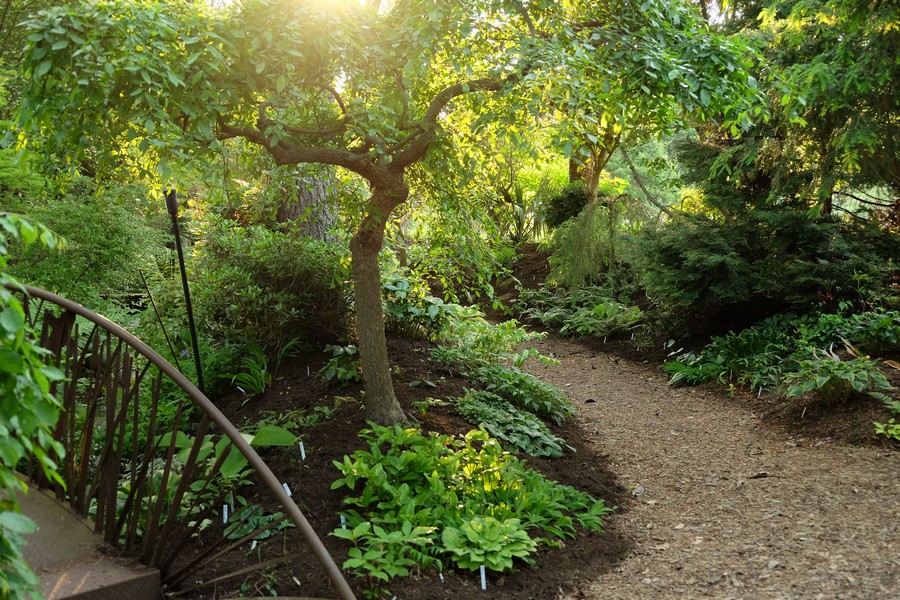
Juniper Level Botanic Garden in Raleigh, NC.

We like hearing from you! Please
your comments, suggestions, inquiries, and submissions.
 Sign up for notices of TAT's four annual events and free
monthly Forums by email on our .
Sign up for notices of TAT's four annual events and free
monthly Forums by email on our .

Founder's Wisdom
Richard Rose (1917-2005) established the TAT Foundation
in 1973 to encourage people to work together on what
he considered to be the "grand project" of spiritual work.
|
A state of mind carries conviction and may result from a long period of accumulation of various convictions, and those convictions may have been inspired by totally non-logical moods. ... In direct-mind introspection, the mind stares at itself, and eliminates the mind-functions that would prematurely destroy the body, or would distort the ability to recognize the true states of mind. Only the true states of mind will lead us to the True Scientific Realization. ... Moods can lift us to pleasant heights or drag us down to mental states that lead to murder or suicide. Yet at the same time I maintain that even the darker moods which lead to despair and death will turn into good for us if we view them from a detached or superior position, or we might say from the umbrella-viewpoint. Pleasant moods indicate correct direction, that is, direction toward ultimate realization or peace of mind. Unpleasant moods are signals to review our aims. Even unpleasant moods may be the result of tremendously pleasant experiences, wherein depression results from an intuitive recognition that the sensuosity is a sliding board that sweeps us irrevocably into a mental trap in which the sensuosity is blunted or jaded, and in which the vision of simple serenity is never attainable. In order to evaluate moods from a superior position, we have to study them after they have passed. Moods do not let us go just because they made us unhappy or suicidal. Yet after the mood has passed, and has been studied, the analysis has to involve some picture of its origin, and some determination of the means to avoid its recurrence in the future. Moods ... cause or re-trigger states of mind. The state of mind then facilitates an easy return of the mood. I found that the study of dreams led me to a better understanding of moods.... The subject-matter of a dream is not as important as the "feel" of a dream. You may feel as though a message is being conveyed to you through feeling which has nothing to do with the grotesque or fantasy-like events in the dream. ... I have found that there are three major moods in dreamland. Dreamland is a separate place, a stage or a state. One of the moods is Fear. Another is Seduction or acquisition. And the third is Nostalgia.... The above three moods represent three great motivations that for some reason have been ingrained or programmed into all people. I think that the understanding of the effects of moods, and combinations of moods, will bring us closer to an understanding of the non-somatic mind and how it affects ... seriously ... the life of the body. I think it might be a good idea to look for our understanding of the mind in the mind itself. I maintain that the nostalgic mood becomes the language of the soul. It is the inner man trying to get through the earth-man's paradigm, to communicate with him. * From the "Lecture on Moods" in The Direct-Mind Experience by Richard Rose. |

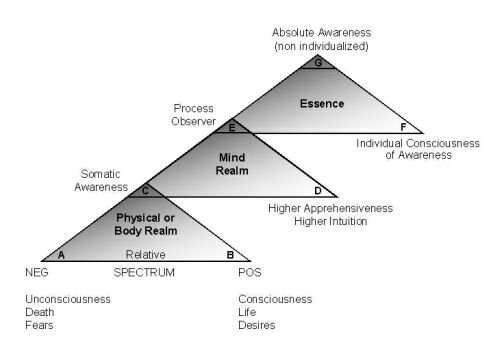
Jacob's Ladder © 2001 Richard Rose. See this transcript of a talk on the topic by Rose.

Homing Ground Update… A spot on earth where people can do retreats and hold
|
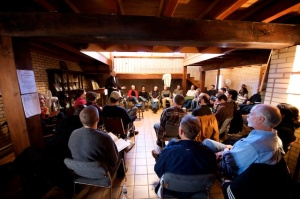
Did you enjoy the Forum? Then buy the book!
Readers' favorite selections from seven years of issues.
Beyond Mind, Beyond Death is available at Amazon.com.




 Update from the
Update from the  Update from the Dublin, Ireland self-inquiry group:
Update from the Dublin, Ireland self-inquiry group: Update from the
Update from the 

